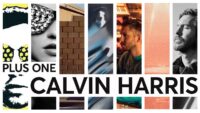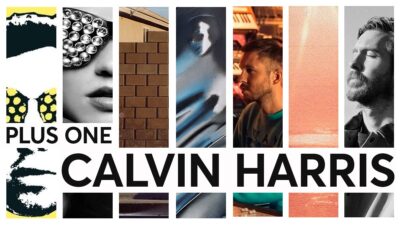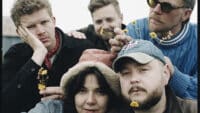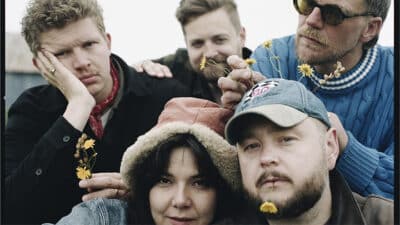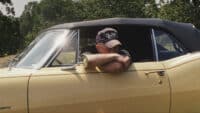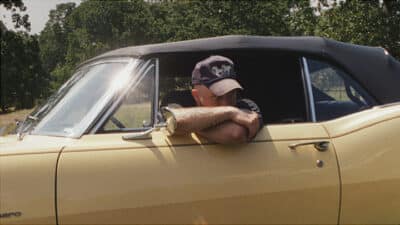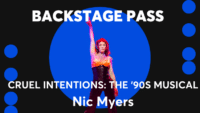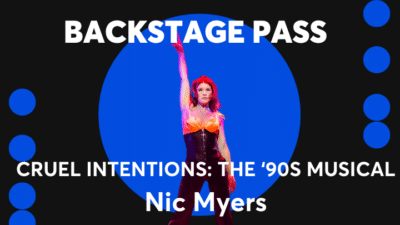Music
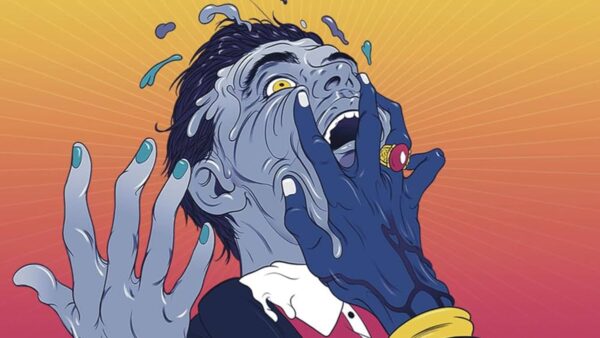
Interview
Everything Everything talk 10 years of Get To Heaven
The art rock shapeshifters reflect on the enduring impact of their third album as they gear up to celebrate with a full tour.
For some, the 00s was the decade where British indie music peaked.
Largely characterised by jangly riffs and lo-fi aesthetics, as The Strokes and Interpol dominated the US airwaves, across the Atlantic a sharper, more danceable take on the genre was taking shape. With Arctic Monkeys, Franz Ferdinand, and Bloc Party leading the charge, as the years progressed, the evolution was rapid.
A new wave of bands stared taking notes from outside of guitar music; Friendly Fires’ 2008 debut basked in its house and disco influences, whilst Klaxons pioneered a sound led by synth-heavy beats and psychedelic flourishes. All manner of artists embraced hip-hop, rap, and electronic sounds, and it was a shift that many would argue revived the indie genre, paving the way for a band like Everything Everything to reshape its future.
When the Manchester band emerged with 2010 full-length debut Man Alive and its glitchy, 2013 alt-pop follow-up The Arc, they were hard to ignore. Inspired by the fearless versatility of those that came before them, their collision of math rock, hip-hop, and art-rock with classic British indie charm was unlike anything the genre had seen before, each and every note bound by the masterful songwriting of frontman Jonathan Higgs.
“It was an exciting time to be in a band because the idea of genre was breaking down,” he explains.
“It was the early days of streaming, and suddenly you wouldn’t necessarily listen to a full album, you were listening to individual tracks. It didn’t matter that they weren’t all the same, and that idea spread. You didn’t have to follow all the rules of a genre anymore; you could just throw in whatever you like.”
Turning heads with their artsy approach and an ability to craft songs that effortlessly shapeshifted, by the time 2015 came around there was a fair amount of buzz around Everything Everything. Evolving the complex wackiness of their debut into something a little more direct on Arc, the second album’s dramatic, emotional epics resonated with indie fans across the nation, but just two years later – a lot had changed.

Photo by Shirlaine Forrest/WireImage
Quietly sick of barrelling through sets of sad, tender songs, the four-piece were hankering for a dose of the fun, pissed-off rock fervour they’d grown up seeing from their idols. Coming down from a gruelling touring schedule and ready to leave the passionate, romantic energy of their second album behind, Higgs found himself glued to 24-hour rolling news. With endless stories of ongoing atrocities, outbreaks, and injustices taking up more space in his brain with each passing day, the bleakness of the world became impossible for him to ignore.
“I was naively consumed by it, and I tried to deal with it in a way that I wouldn’t even attempt to now. I was spending a lot of time in weird parts of the internet, in places like 4chan, and I was seeing these young men talking in a way that was new to me,” the frontman recalls.
“They were part of the alt right – not quite incels, but certainly adjacent to it. It didn’t seem like anyone was going to stop them, and I had this overwhelming sense that something was coming. Everywhere I looked, more people were picking that idea up, rather than putting it down. Now they’re in the White House. I saw them coming up from the dark recesses of the internet, and they won the world. Even back then, it felt like it was inevitable.”
“That put me in quite a dark place, and it started spilling out into the songs I was writing,” he adds.
“It’s not as though I thought that singing about shooting people and putting a funky beat behind it would be commercially successful, it’s just what I felt like I had to do. We wanted to make an album that was high energy, but it happened to coincide with the darkest lyrics I’ve ever written.”
Those two things are what sit at the heart of Get To Heaven, an album that tackles everything from the rise of UKIP and the corruption of media coverage to mass shootings and the Ebola outbreak, channelling it all into frantic, urgent rock songs.
Veering from glacial unease to explosive catharsis, the tone is set as soon as Higgs’ biting falsettos surge into action on opener ‘To The Blade’. From there, it’s a spiralling descent into madness. There are the apocalyptic synths of ‘Fortune 500’, and the deceptively bright choruses of ‘Regret’; its jittery, anxious guitars barely cloaking the notes of helplessness and guilt. Elsewhere, you’ll find the lurching rhythm and darkly absurd lyrics of ‘No Reptiles’, the twisted funk groove of ‘The Wheel (Is Turning Now)’, and the psychedelic shudder of closer ‘Warm Healer’. A kaleidoscope of fear and satire, each and every note is delivered with a manic energy, encapsulating the dread and confusion that still surges through so many of us today.
Recorded in Oxfordshire’s Angelic Studios – owned by producer and Jamiroquai keyboardist songwriter Toby Smith before his death in 2017 – the band initially recorded the songs alone before sending them to producer Stuart Price.
Price’s name was originally shot down by Higgs and his bandmates after seeing the likes of Madonna and Kylie Minogue in his discography, questioning whether it was the right fit for a band like theirs. Agreeing to a call just to test the waters, there was an instant spark, and the producer wound up playing an integral role in bringing the magic to Get To Heaven.
“He came all the way from America to our little rehearsal room just to watch us play these songs live. It would have sounded terrible, and they were unfinished, but he believed in us,” Higgs recalls.
“He was working from LA, so we would record during the day, send the files to him, and he’d work during our night. We’d wake up to new versions each morning, and sometimes they would be radical overhauls. Even with the ones he didn’t change as much, he would always add something with loads of character. He has a boundless, almost childlike imagination. There were no rules, and he would do outrageous stuff that somehow worked. It’s a bit of a cliché, but he was like our fifth member in terms of the ideas.”
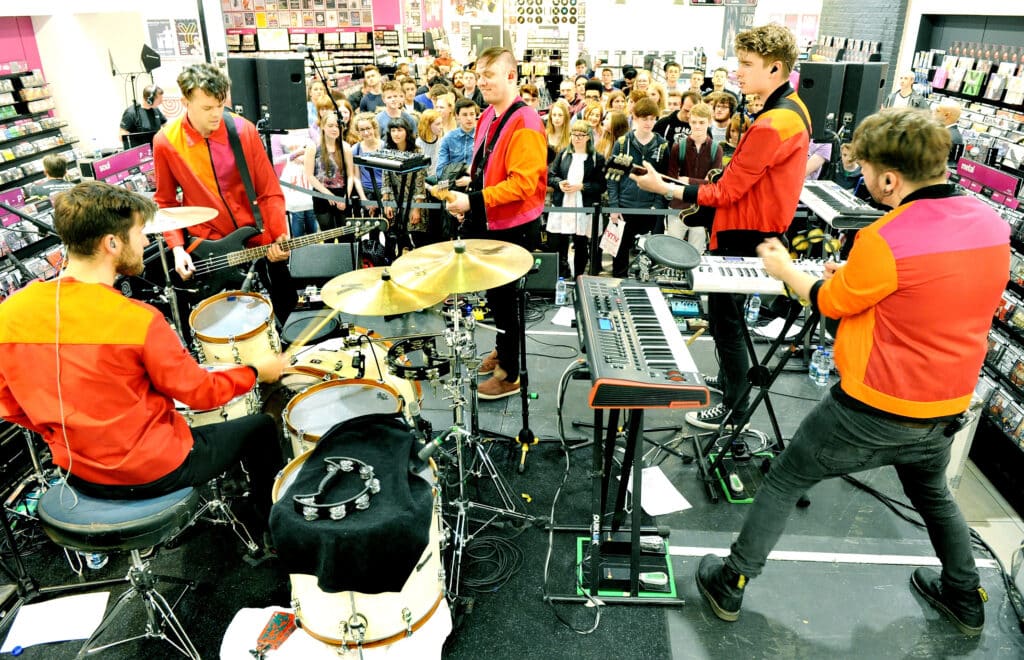
Photo by Shirlaine Forrest/WireImage
That meeting of musical minds is essential when creating any album, but especially so when it comes to one as bold and darkly prophetic as Get To Heaven. With its lyrics delving into some of the harshest realities of its time, there are moments that feel as though they’ve been ripped straight from an apocalyptic horror story. Nowadays, there are countless musicians shining a much-needed light on the political and social issues affecting us, calling out those in power and demanding better for the next generation. But in 2015, especially in the circles that Higgs and his bandmates operated within, that wasn’t always the case.
With artists frequently instructed to stay out of politics, sometimes fearing backlash for speaking out on what they believed, the frontman would be lying if he said he wasn’t slightly nervous about unleashing Get To Heaven into an increasingly divided world.
“After the record was done, there was a period where I didn’t know if people would understand me, or if people would feel the same way I did. I didn’t know if I was just weird, if any of it was real, or if I was just going on the wrong websites,” Higgs explains.
“We did Glastonbury before the record came out. I remember playing ‘No Reptiles’ there, which is arguably the biggest test of whether people would get the album or not. I’m sure it was the live debut of the song, so as far as we were aware, no one knew it. Halfway through the song it gets quiet, and I start singing strange stuff. The whole crowd sang it back to me, and I started crying. I couldn’t even sing the song, so the whole band just played it behind me while they sang. I knew then that it was going to work, and that people were going to understand it. It was immediate, and it’s only become more understood as time’s gone on.”
Ten years on, there are plenty of cuts from ‘Get To Heaven’ that make the setlist each and every night. The robotic voice samples of ‘Distant Past’ and the bouncy positivity found within ‘Spring / Sun / Winter / Dread’ now firmly ingrained in their memories, it’s the deeper cuts that Higgs is most excited to get back into, pointing to ‘Zero Pharaoh’ as a personal favourite.
Intending to rattle through the six tracks on the album’s deluxe edition too, the band are even planning to bring back their bright red stage costumes from 2015 for the upcoming anniversary tour. Taking to stages across the UK to celebrate Get To Heaven once more, as the practices get underway and the shows edge closer, Everything Everything are ready for whatever the future may bring.
“Honestly, the struggle of my creative career was always trying to not repeat Get To Heaven. The idea of retracing our steps is anathema to us, but I think it’s inevitable that the energy of these shows will bleed into whatever we do next,” Higgs finishes.
“When we first toured around this album, it felt much more dangerous. I felt misunderstood, like an outsider preaching from a street corner. I thought that maybe I had got it all wrong. Now, I feel very much in control of it. Everything I said came true, and the songs were bangers too. I’m so proud to relive it, and I want to inhabit the guy that I was with this newfound knowledge of the last decade.”




